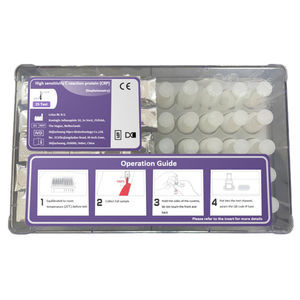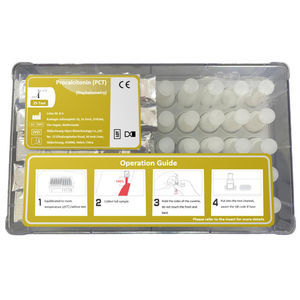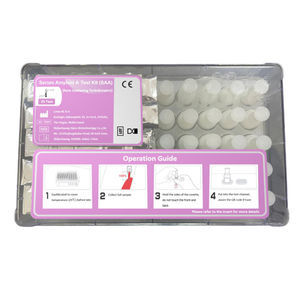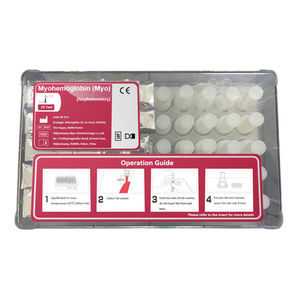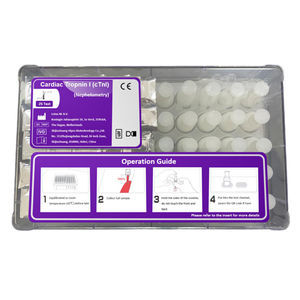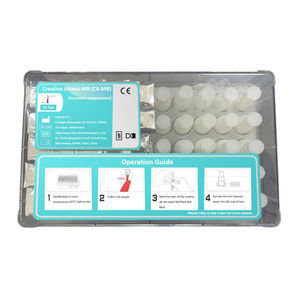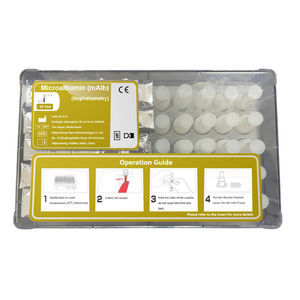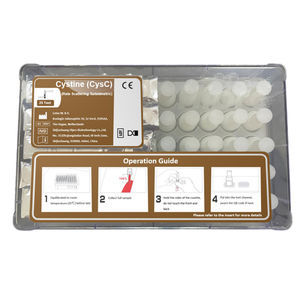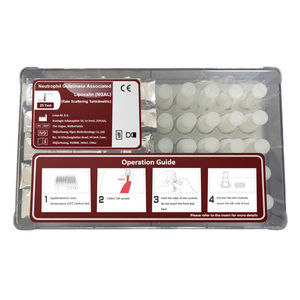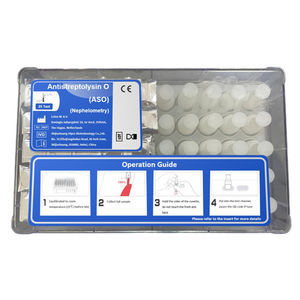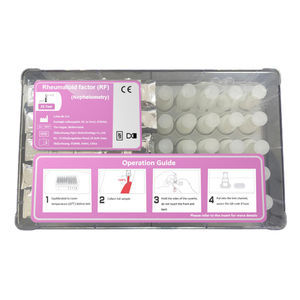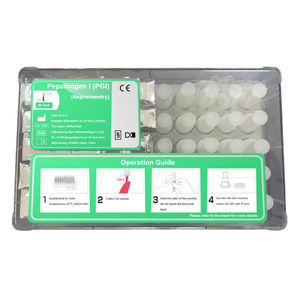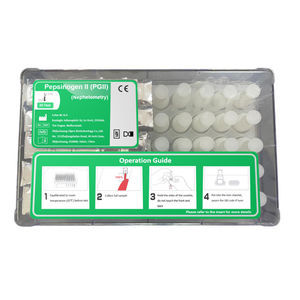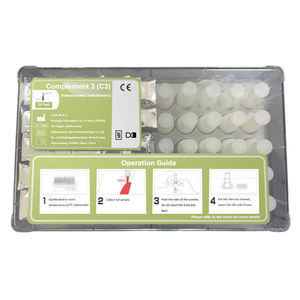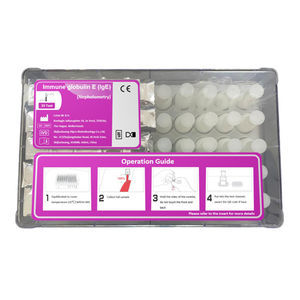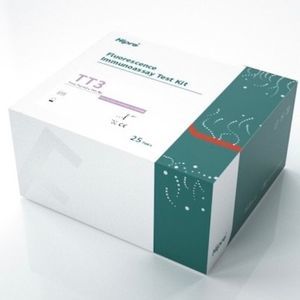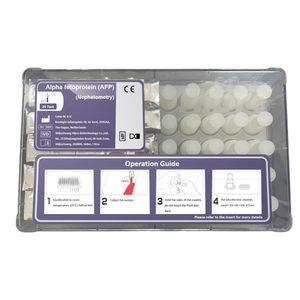
- Laboratory
- Laboratory medicine
- Colon cancer test kit
- Hipro Biotechnology Co., Ltd.

- Products
- Catalogs
- News & Trends
- Exhibitions
CEA test kit colorectal canceroncologyclinical
Add to favorites
Compare this product
Characteristics
- Applications
- colorectal cancer
- Application field
- oncology
- Tested parameter
- CEA
- Sample type
- clinical, blood, serum, tissue
- Analysis mode
- molecular
- Result display time
300 s
Description
The cea blood test kit is used to determine the content of Carcinoembryonic antigen (CEA) in human serum to be used as an aid in the prognosis and management of cancer patients in whom changing concentrations of CEA are observed.
Testing Principle of CEA Test
Carcinoembryonic antigen (CEA), first described in 1965 by Gold is a tumor-associated antigen.
With a molecular weight of 180-200 kDa.
CEA is present in high concentrations during fetal development but ceases after birth.
Therefore, it is not usually present in the blood of healthy adults.
The normal CEA range for a nonsmoking adult is less than 2.5 ng/mL and less than 5.0 ng/mL in a smoker.
Additional studies have also shown that increased CEA levels are also found in patients with other types of carcinomas such as breast, lung, genitourinary tract, and lymphoid tissue.
Benign conditions that can also cause significantly higher than normal CEA levels include inflammation of the lung and gastrointestinal (GI) tract and benign liver cancer.
In colorectal cancer, the clinical use of CEA testing is for monitoring response to therapy and for documenting the progression of the disease.
Basic Parameters of CEA Test
Packing: 25 Tests/Kit.
Box Size: 17*10*8cm.
Storage: 2-8℃.
Shelf life: 1 year.
Catalogs
No catalogs are available for this product.
See all of Hipro Biotechnology Co., Ltd.‘s catalogsExhibitions
Meet this supplier at the following exhibition(s):

Other Hipro Biotechnology Co., Ltd. products
Diagnostic Reagents
Related Searches
- Assay kit
- Solution reagent kit
- Blood assay kit
- Serum assay kit
- Immunoassay assay kit
- Plasma assay kit
- Infectious disease detection kit
- Blood rapid diagnostic test
- Protein reagent kit
- Diagnostic reagent kit
- Molecular test kit
- Respiratory infection test kit
- Rapid virus test
- Whole blood detection kit
- Serum rapid diagnostic test
- Plasma rapid diagnostic test
- Clinical assay kit
- Infectious disease rapid diagnostic test
- Whole blood rapid diagnostic test
- Cassette assay kit
*Prices are pre-tax. They exclude delivery charges and customs duties and do not include additional charges for installation or activation options. Prices are indicative only and may vary by country, with changes to the cost of raw materials and exchange rates.

